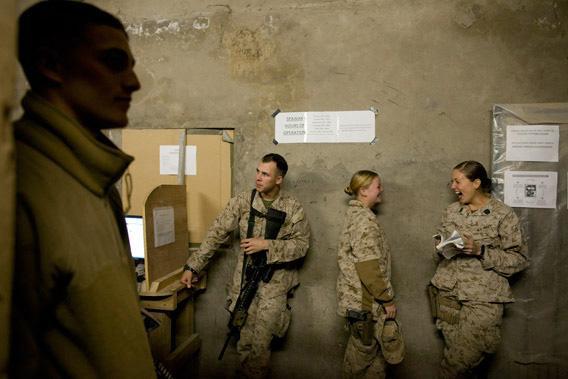Nineteen years ago, when the Department of Defense considered whether to let women serve officially in combat, opponents said it might weaken the military. They called it a dangerous “social experiment.” And they won. DOD issued a decree that “women shall be excluded from assignment to units below the brigade level whose primary mission is to engage in direct combat on the ground.”
Today, as DOD moves to rescind that rule, defenders of the 1994 policy are sounding the same alarm. “Our military cannot continue to choose social experimentation and political correctness over combat readiness,” says Penny Nance, president of Concerned Women for America. “This kind of a social experiment is a dangerous one,” says Elaine Donnelly, president of the Center for Military Readiness. “The people making this decision are doing so as part of another social experiment,” says retired Lt. Gen. Jerry Boykin, executive vice president of the Family Research Council. “Is the social experiment worth placing this burden on small unit leaders? I think not.”
But this time, the scare campaign isn’t working. House Speaker John Boehner and Senate Republican Leader Mitch McConnell are lying low. Sen. John McCain, R-Arizona, and other Republicans who set the party’s tone on defense issues are endorsing DOD’s decision. Why? Because the women-in-combat experiment has already happened. It was conducted in Afghanistan and Iraq by the administration of President George W. Bush. And it worked.
Today, women comprise about 15 percent of the active-duty military. More than 20,000 have served in Iraq and Afghanistan. More than 800 have been wounded, and more than 150 have died. Insurgents and roadside bombs didn’t care whether these women were officially in combat roles: They killed them all the same. As Iraq War veteran Kayla Williams explains in Slate, the reality of war overwhelmed the Pentagon’s attempts to segregate female service members. Women fought, died, and were mourned, just like men. No cultural crisis ensued.
Many Americans know women who served in these conflicts. Others have read, seen, or heard firsthand accounts such as Williams’. And these experiences have affected officeholders as well as the public. Members of the House of Representatives now serve with Rep. Tammy Duckworth, D-Illinois, who lost her legs as a helicopter pilot in Iraq. They also know Rep. Tulsi Gabbard, D-Hawaii, another Iraq veteran. And many lawmakers have visited war zones. “I’ve seen firsthand service men and women working together in a range of dangerous operations to achieve our military objectives,” says Sen. Kelly Ayotte, R-New Hampshire. “Today’s announcement reflects the increasing role that female service members play in securing our country.” McCain agrees: “American women are already serving in harm’s way today all over the world and in every branch of our armed forces. Many have made the ultimate sacrifice.” The chairman of the House Armed Services Committee, Rep. Buck McKeon, R-California, welcoms DOD’s decision and notes that during “a decade of critical military service in hostile environments, women have demonstrated a wide range of capabilities in combat operations.”
This is what happens to warnings about social experiments. Officially or not, the experiments take place. Sometimes, as in the case of single parenthood, they fail. Sometimes, as is in the case of gay marriage, they succeed. When they succeed, we lose our fear. And when they involve bravery, service, and sacrifice, we’re moved. We aren’t talking about experimentation anymore. We’re talking about experience.
William Saletan’s latest short takes on the news, via Twitter:
